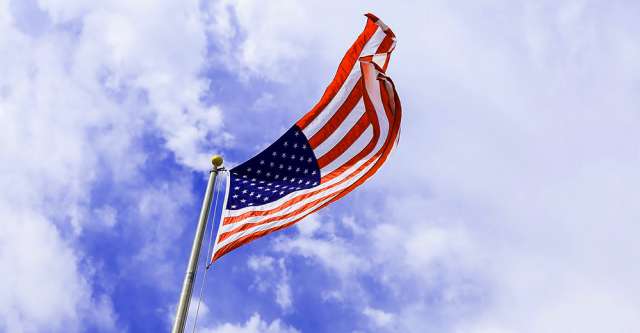When Americans are asked what July 4th is all about, the answer is a resounding “Independence!” or “Freedom!” But what history do those words represent? What was it about the founding of the United States of America that is “exceptional”? Where did our founder’s ideas come from, and what pushed them to revolution?
A people or country does not simply arrive at “revolution,” it is usually a culmination of many straws before the “final straw” that breaks the “camels back.” Thomas Jefferson pointed out that, “Governments long established should not be changed for light and transient causes; and accordingly all experience hath shewn that mankind are more disposed to suffer, while evils are sufferable than to right themselves by abolishing the forms to which they are accustomed.”
Back to the Beginning
After the Pilgrims were settled in America, time passed, and their posterity was content. England left the American Colonies pretty much to themselves, but then, England began asserting herself by a new attitude of making the colonies help pay for Britain’s protection in trade and the “French and Indian War.” Taxation was a significant issue, and Britain began taxing the thirteen colonies. Our Founding Fathers were OK with taxation but asked for a seat at the table (representation) but were refused.
The King and his government renegotiated charters to the colonies. This unilateral renegotiation was seen as a breach of contract, and therefore, the colonies were free from the charter’s terms.
For taking away our Charters, abolishing our most valuable Laws and altering fundamentally the Forms of our Governments
The King also refused to implement laws and measures the colonists saw as a refusal to abide by common and natural law. He refused to acknowledge that he was “only” king, and therefore, the colonists, in their view, would choose to follow and obey “Nature’s God” and his law if the king overstepped his authority.
Slavery
England was also making slaves of men on the sea, criminals, etc. in addition to the African slave trade. He was engaging in the same practices that the Moors and Barbary Pirates had engaged in for centuries; that is, the Barbary Pirates took Europeans as well as Africans for slaves [1] and now England was doing the same thing.
he has waged cruel war against human nature itself, violating it’s most sacred rights of life & liberty in the persons of a distant people who never offended him, captivating & carrying them into slavery in another hemisphere, or to incur miserable death in their transportation thither. this piratical warfare, the opprobrium of infidel powers, is the warfare of the CHRISTIAN king of Great Britain —Thomas Jefferson [2]
Colonies like Penn’s Pennsylvania had long-held abolitionist views, and those views were shared by other colonies as well. In the first draft of the Declaration of Independence Thomas Jefferson penned a searing denunciation of slavery, and the King’s part in it, that, unfortunately, was discarded by colonies that wanted to continue the practice and the delegates were afraid to challenge them for fear of losing the prospective union of the colonies and by extension diminishing the prospect of winning the revolution.
The colonies who still wanted to abolish slavery, stood on the first grievance listed in the Declaration of Independence, “He has refused his Assent to Laws, the most wholesome and necessary for the public good” to further their cause.
History professor Steven Pincus states that the first grievance is “extremely important” because many of the colonies passed measures intended to slow down the pace of slavery [3].
The War for Independence
The War for Independence started with the shot heard round the world at Lexington and Concord in 1775. The Second Continental Congress met, and the Declaration of Independence was adopted on July 4, 1776.
Even though the Declaration of Independence was signed in 1776, the war did not end until 1783. After the war ended, the thirteen colonies were referred to as the United States of America.
Notes:
- ^Contributors to Wikimedia projects. (2020, July 08). Barbary slave trade – Wikipedia. Retrieved from https://en.wikipedia.org/w/index.php?title=Barbary_slave_trade&oldid=966650362 (go back ↩)
- ^Jefferson’s “original Rough draught” of the Declaration of Independence – Declaring Independence: Drafting the Documents | Exhibitions – Library of Congress. (1995, July 04). Retrieved from https://www.loc.gov/exhibits/declara/ruffdrft.html (go back ↩)
- ^Contributors to Wikimedia projects. (2020, July 04). Grievances of the United States Declaration of Independence – Wikipedia. Retrieved from https://en.wikipedia.org/w/index.php?title=Grievances_of_the_United_States_Declaration_of_Independence&oldid=966033589 (go back ↩)

